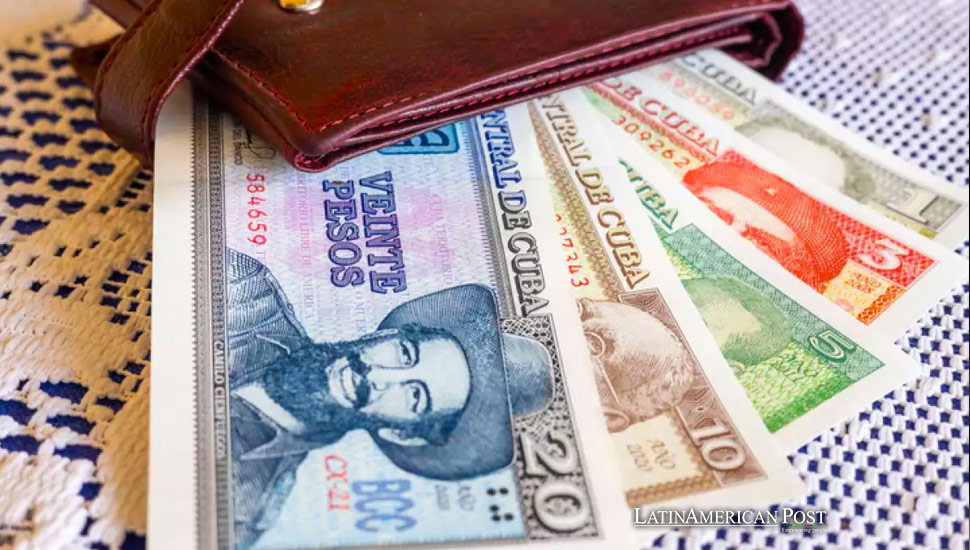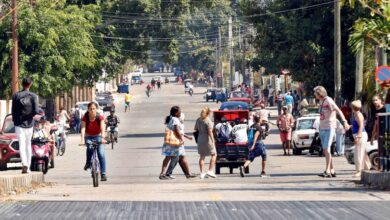Cuban Economy Shrinks Amid Ongoing Challenges and Necessary Adjustments

Cuba’s GDP contracted by 1.9% in 2023, continuing a four-year struggle to return to pre-pandemic levels. The country faces significant economic challenges, including U.S. sanctions, currency shortages, and high inflation.
The Ministry of Economy of Cuba confirmed that the nation’s Gross Domestic Product (GDP) contracted by 1.9% in 2023. This figure falls within the government’s projected range of a 1% to 2% decline announced at the end of 2023. This marks the fourth consecutive year that Cuba’s economy has failed to return to its pre-pandemic levels.
In 2020, Cuba’s GDP plummeted by 10.9%, followed by modest growth of 1.3% in 2021 and 1.8% in 2022. The contraction in 2023 underscores the island nation’s ongoing economic difficulties.
Minister of Economy Joaquín Alonso Vázquez outlined several reasons for the economic contraction of 2023. Speaking at the Economic Affairs Commission of the National Assembly of People’s Power (ANPP) ahead of the upcoming session, Vázquez cited U.S. sanctions as a significant factor. These sanctions, which have been in place for decades, have severely restricted Cuba’s access to international markets and financial institutions, hindering its economic growth. He also mentioned a shortage of foreign currency and products, fuel shortages, and an excess of cash in circulation among the primary factors contributing to the economic downturn.
Despite these challenges, the tourism and hotel sector was the most significant contributor to the GDP in 2023, accounting for 13% of the total. However, the minister warned that economic indicators for 2024 have yet to be promising. For instance, in the first half of the year, Cuba received only 88% of the anticipated foreign currency inflows, amounting to $222 million less than expected.
Moreover, Vázquez highlighted the persistence of “excess money in circulation” and a “high concentration” of this money outside the island’s banking system, coupled with an “insufficient supply of goods and services.” These factors collectively make it “very difficult” to curb the inflation rate, which hovers around 30% year-on-year.
Power Outages, Deficits, and Inflation
Cuba grapples with numerous economic challenges, including frequent power outages, significant public deficits, and rampant inflation. The Cuban parliament is set to endorse a new adjustment plan, the second in just six months, to address these issues. The Council of Ministers has proposed a series of measures to cut expenses— from suspending public investments to reducing budget allocations—with the primary goal of increasing revenues in both pesos and foreign currencies.
The island nation is mired in a profound crisis exacerbated over the past four years by the combined effects of the pandemic, U.S. sanctions, and mismanagement of economic and monetary policies. According to the United Nations, Cuba imports 80% of what it consumes and exports very little, leading to a significant trade imbalance. This imbalance, coupled with a public deficit projected to reach 18.5% of GDP this year, marks the fifth consecutive year of fiscal shortfalls.
Inflation has plagued the Cuban economy since the implementation of the Tarea Ordenamiento in January 2021, a failed economic and monetary reform. A carton of 30 eggs costs more than the minimum state salary, and filling a car’s gas tank exceeds the average monthly wage.
Regional Economic Struggles
Cuba’s economic struggles are part of a broader context affecting many Latin American countries. The region has faced significant financial challenges in recent years, exacerbated by the global pandemic, political instability, and external economic pressures. Many countries in Latin America, like Cuba, rely heavily on imports and face substantial trade deficits.
In Venezuela, for instance, economic mismanagement and U.S. sanctions have led to hyperinflation and severe shortages of essential goods. Similarly, Argentina has grappled with high inflation and a substantial public deficit despite various attempts at economic reform. These issues highlight the interconnectedness of Latin American economies and their shared challenges, underscoring the need for a comprehensive and collaborative approach to economic stability.
In this regional context, Cuba’s reliance on tourism as a primary source of income is shared. Many Caribbean nations depend heavily on tourism, which the pandemic has severely impacted. The slow recovery of this sector, coupled with the ongoing threat of new variants and potential travel restrictions, has hindered economic growth across the region, further complicating efforts to stabilize national economies, including Cuba’s.
Future Prospects and Necessary Adjustments
Looking ahead, Cuba faces a daunting task in stabilizing its economy and fostering sustainable growth. The new adjustment plan addresses some of the most pressing issues, including cutting public spending and increasing revenues. However, the effectiveness of these measures remains to be seen.
The Council of Ministers’ proposed adjustments include suspending non-essential public investments and reducing budget allocations in various sectors. These measures aim to curb the public deficit and control inflation. Additionally, the government plans to implement policies to attract foreign investment and boost exports. These policies include creating a more favorable business environment for foreign investors, promoting key industries for export, and seeking new trade partnerships, although existing U.S. sanctions may hamper these efforts.
Cuba’s economic future will also depend on its ability to effectively manage the supply of goods and services. The current shortage of essential items and the high cost of living are significant obstacles to economic recovery. Addressing these issues will require a multifaceted approach, including improving agricultural production, enhancing supply chain efficiency, and fostering private sector growth.
Cuba’s economic challenges are complex and multifaceted, reflecting broader regional struggles in Latin America. The GDP contraction in 2023 underscores the need for comprehensive economic reforms and effective management of both domestic and external factors.
As Cuba navigates these challenges, the government’s ability to implement and sustain necessary adjustments will be crucial. The ongoing support from international organizations and the potential easing of external pressures could also significantly shape Cuba’s economic future, offering a glimmer of hope in an otherwise challenging situation.
Also read: Cuba Tightens Regulations on Private Businesses Amid Economic Crisis
For now, the island nation remains in a precarious economic state, with its citizens bearing the brunt of the crisis. The coming years will be critical in determining whether Cuba can achieve financial stability and growth, ensuring its people a better quality of life. Yet, it’s important to note the resilience and determination of the Cuban people in the face of these challenges, a testament to their strength and spirit.





